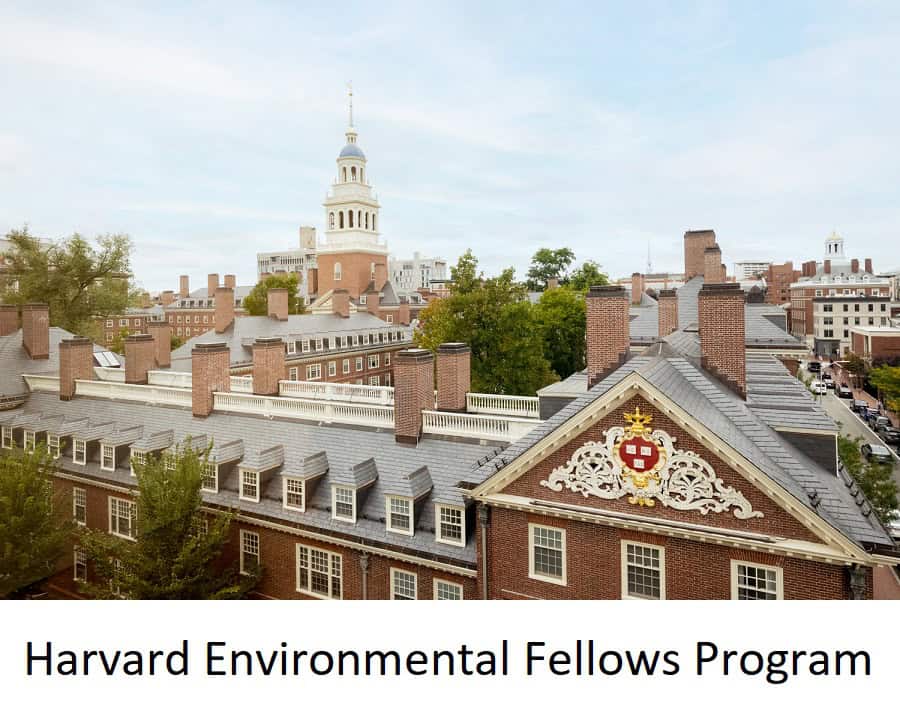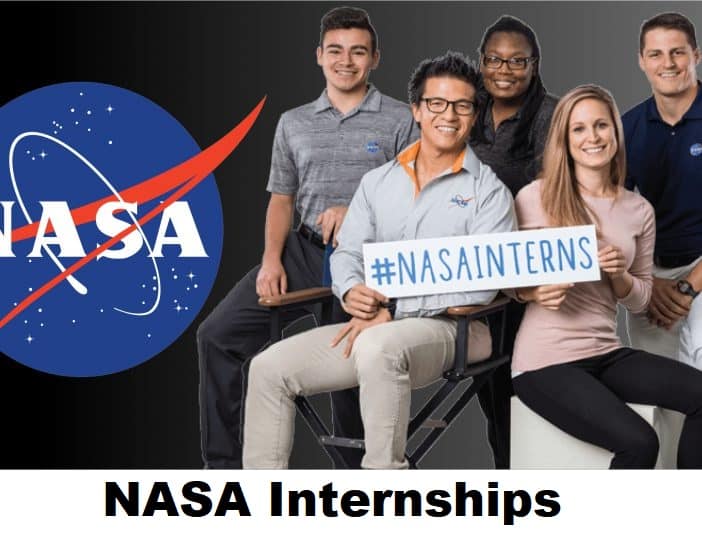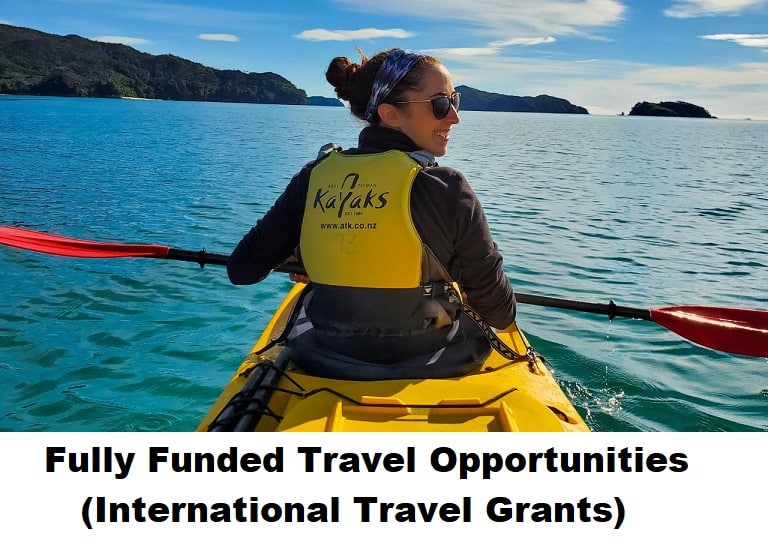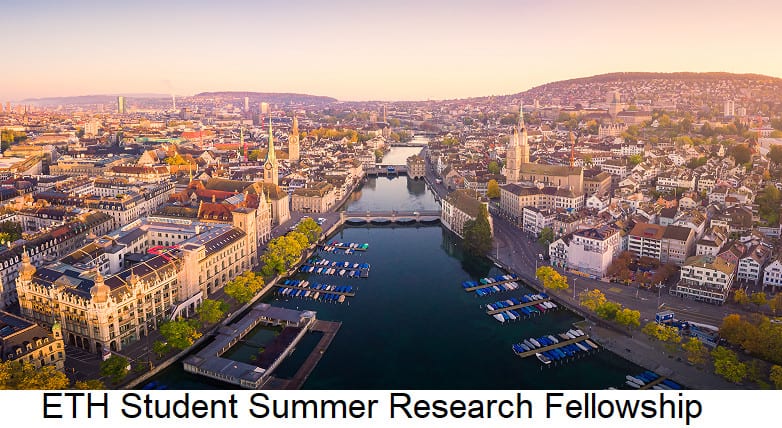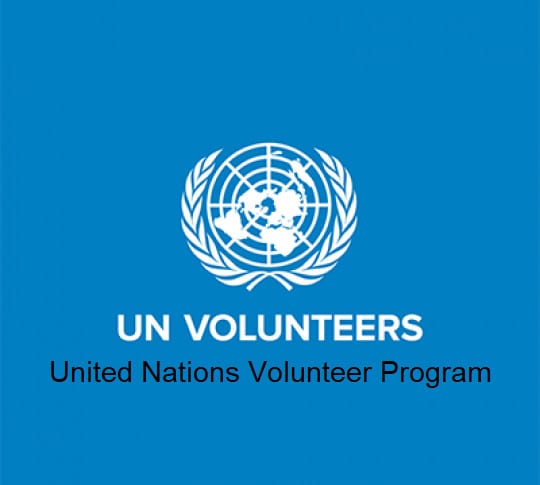When people talk about Harvard University, the first thing that often comes to mind is prestige: ivy-covered walls, brilliant professors, and groundbreaking research. But Harvard isn’t just about producing top lawyers or CEOs—it’s also a place where some of the world’s biggest challenges are tackled head-on.
One of those challenges? Climate change.
In 2026, Harvard will once again welcome a new cohort of scholars for the Harvard Environmental Fellows Program, a two-year, fully funded fellowship aimed at early-career researchers who want to focus on environmental issues. This isn’t just another academic grant. It’s a unique opportunity to work alongside some of the brightest minds at Harvard and to think seriously about what kind of world we want to leave behind.
Why This Fellowship Stands Out
There are countless postdoctoral fellowships around the world, but few offer what Harvard does: the chance to work across disciplines. Climate change doesn’t sit neatly in one box. It touches on everything—energy, health, politics, food security, law, economics. And that’s exactly how this fellowship is structured.
A biologist researching forest ecosystems might collaborate with an economist studying carbon markets. A public health specialist could work with a political scientist on climate migration. These aren’t just “nice-to-have” conversations—they’re the kind of collaborations that spark real change.
And let’s be honest, having “Harvard” on your CV doesn’t hurt either.
What Fellows Actually Do
The program runs for two years in Cambridge, Massachusetts, right at the heart of Harvard’s campus. Each fellow is paired with a faculty host—a mentor who helps guide research while also opening doors to other departments.
But this isn’t an isolating, sit-in-the-lab type of fellowship. Every couple of weeks, fellows gather with faculty and invited speakers for dinner. These aren’t stiff academic conferences; they’re relaxed, thought-provoking evenings where people from completely different fields swap ideas. One fellow might be talking about Arctic ice cores while another is debating the politics of climate treaties. The cross-pollination of ideas is exactly the point.
What You Get – Funding and Support
Let’s cut to the chase: this is a fully funded opportunity, and the support is generous. Fellows receive:
-
$90,000 per year in salary (very competitive for a postdoc)
-
Health insurance as an employee benefit
-
Up to $2,500 for relocation costs
-
A $2,500 travel allowance each year for fieldwork or conferences
In short, fellows don’t need to worry about financial distractions—they can put all their energy into research.
Who Can Apply?
Eligibility is fairly straightforward, but competitive:
-
You must hold a PhD (or equivalent) awarded between May 2022 and August 2026.
-
Candidates from any field—science, law, economics, policy, design, public health—are encouraged, as long as their research focuses on an environmental issue.
-
Current Harvard affiliates can apply, but they must pursue a new area of research with a new faculty mentor.
-
Applicants need to secure a Harvard faculty member as a host/mentor before applying.
-
English proficiency is required, since the program is conducted in English.
Application Process
Applying isn’t overly complicated, but preparation is key. Here’s how it works:
-
Fill out the online form on Harvard’s official portal.
-
Write a short abstract (175 words max) that captures your project.
-
Upload required documents (CV, proposal, samples, etc.).
-
Your host faculty uploads a support letter—you’ll get an email confirmation once it’s in.
Documents you’ll need:
-
Updated CV with publications
-
Research proposal (your main project plan)
-
Three writing samples
-
Statement of Research (your academic vision)
-
Letter of Support from your Harvard faculty host
📌 Deadline: December 1, 2025
Why Fellowships Like This Matter
Think about it: we’re living in a time when climate-related disasters are in the headlines almost every week. Whether it’s record heat waves in Europe, floods in Asia, or wildfires in North America, the urgency is clear. The Harvard Environmental Fellows Program exists because the world desperately needs ideas that cut across borders and disciplines.
This isn’t just an academic exercise—it’s about developing solutions that communities can use, that policymakers can act on, and that future generations can benefit from.
FAQs
1. Is this fellowship only for scientists?
Not at all. The program is intentionally broad, welcoming economists, lawyers, designers, public health experts, and more.
2. Do I need to find my own host faculty at Harvard?
Yes. Applicants must contact a Harvard professor who agrees to act as their mentor before applying.
3. How much financial support will I receive?
You’ll receive $90,000 per year, health insurance, relocation support, and a $2,500 annual travel allowance.
4. Can current Harvard researchers apply?
Yes, but your fellowship must focus on a different research area and with a different faculty mentor.
5. When is the deadline?
The final deadline is December 1, 2025.
6. When will the fellowship run?
The program begins in 2026 and continues for two years.
Final Thoughts
The Harvard Environmental Fellows Program 2026 isn’t just another academic opportunity. It’s an invitation to be part of something bigger: a global effort to rethink how we live on this planet. For young researchers passionate about climate and sustainability, it’s a chance to step into a community where your work can truly matter.
If you’ve been looking for the right stage to bring your environmental ideas to life, this is it. Harvard is offering the resources, the mentors, and the platform—you bring the vision.
Apply Here Harvard Environmental Fellows Program

